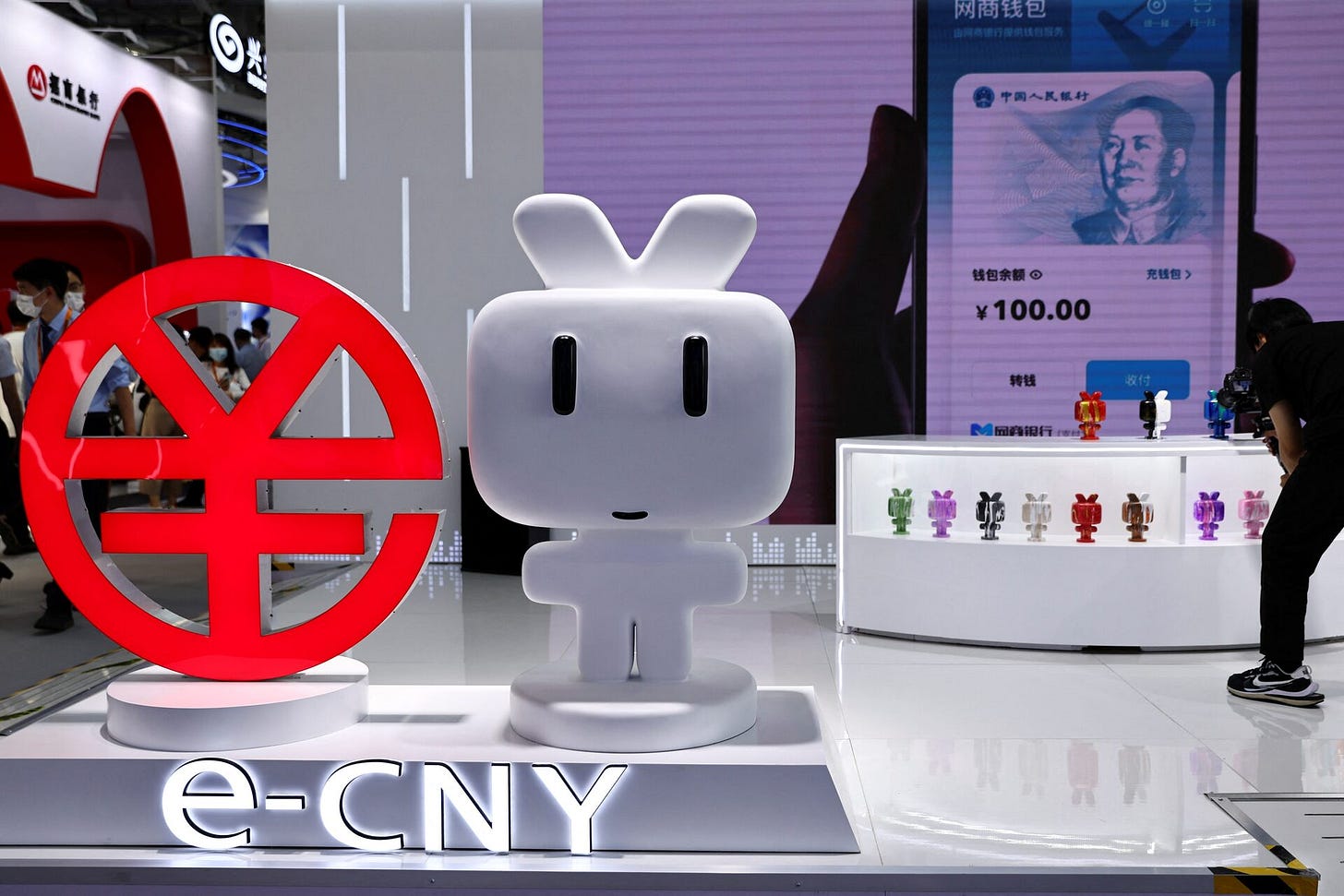Who are you going to trust?
The US won't issue a Central Bank Digital Currency (CBDC), is it banking on stablecoins?
The US won't issue a Central Bank Digital Currency (CBDC).
The issuing of electronic currency directly from a central bank (CBDC) is dangerous for individual freedom. It replaces bankers with bureaucrats, allows instant and personalized monetary policy, has built-in state surveillance and is controlled by an independent non-elected bureaucracy. It's a mystery why electronic sovereign currency cannot be issued by a country's treasury or even post-office.
That said, there is a need to replace the slow and antiquated international SWIFT system with something, as its current network isn’t much faster than when it launched in 1977. So for now CBDC is the buzzword.

In this new multi-polar world if the US dollar wants to stay on-top it needs an upgrade. The head of the Federal Reserve, Jerome Powell, stated several times they are not planning on issuing a CBDC. For good reasons: why would international traders trust a system where they’re one click away from confiscation or freezing?
In 2021 the inter-bank SWIFT network expelled Russia and the US confiscated Swiss bank accounts of Russian businessmen. The United States is wise enough to know launching a CBDC would be even less appealing for anyone who has a shaky relationship with the US.

Now some extreme, but warranted, speculation;
Technologically, Bitcoin is the next generation of the SWIFT network. Its ‘game theory’ innovation and decentralized record keeping is unbreakable even if its cryptography may be cracked eventually. It’s a truly trusted, transparent and fast international money network.
Even if a bug is found or after quantum cracking, the distributed system could likely be reset and become trusted again. This cannot be said for tech companies or banks, which are protected by similar cryptography.
In a world free of power struggles, 195 countries can opt for settlement between foreign currencies on Bitcoin due to its transparency, reliability and relative speed or maybe create a delegated proof-of-stake controlled blockchain of their own, where each country held a node, with equal voting rights. Unfortunately, this is not on the menu right now.
Back to today, Tether USDt, founded by Brock Pierce in 2016, is a Bahamian company that issues the USDt token- a US dollar token running on open-blockchains like Etherum, Bitcoin and Tron. It increased in market cap from $1.8 billion in 2018 to over $110 billion today, settling hundreds of billions of dollars a month, and it’s not slowing down. It allows people, even in countries where the dollar is sanctioned or limited, like China and Nigeria, to use and exchange US dollars.

We ourselves at Efficient Frontier, being a crypto-native trading firm, have moved tens of millions of dollars across borders in minutes using USDt Tether, as it’s the most convenient method for us. We understand from our own experience its huge advantage.
Is the United States government also aware of Tether’s value?
The US has shut down and even seized several offshore crypto exchanges over the years and it seems like there’s nothing they can’t do if they set their mind to it. Lately Binance exchange was fined $4 billion dollars for avoiding American anti-money laundering and securities regulations. The same government allows Tether USDt to continue to operate from Deltec Bank bank in the Bahamas.
USDt brings the dollar to the global black market, and it’s also arguably one of the reserved currencies of the crypto space, along Bitcoin itself. Despite that, Tether had few restrictions and no real audit, serving as a backbone of off-shore crypto-markets like Binance.
Tether’s USDt solution seems workable for an international sovereign currency in the internet age- controlled by a commercial entity, backed by the United States as a currency, easily moved, open-source so you don’t have to register to use it, and automatically confirmed transactions on the blockchain unless you get into some serious trouble.
On one hand all transactions are public, on the other hand, it’s hard to control who uses it. It’s kind of perfect.
Will the US government allow tether to grow from today’s $111 billion into trillions? Will it introduce a more official USD open-blockchain token once Bitcoin becomes generally trusted? And what would this mean for Bitcoin as a settled settlement layer?
Tell us what you think.
